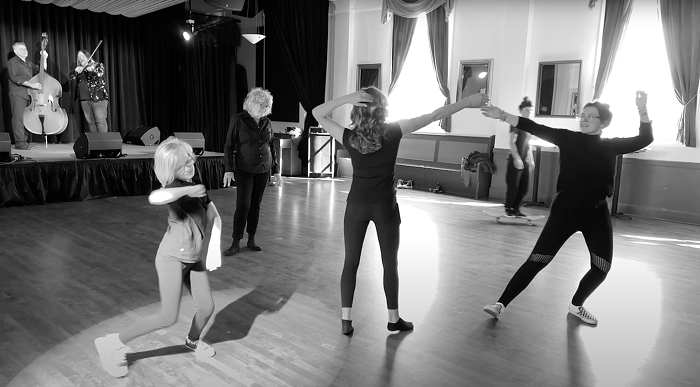WHEN I FIRST SAW Pamela Z perform, I wasn't exactly clear what the hell she was doing. The San Francisco-based performer/composer was waving her hands around like a conductor and somehow manipulating spoken word and a video display without physically touching the array of computers and electronic devices in front of her.
"With the BodySynth, I'm actually wearing electrode sensors against my skin," she explains. "They measure the amount of effort from my muscles and send a corresponding number to a sound module that makes a noise. With the ultrasound control, I'm using my hands near the device and it senses the distance of my hands and uses that as a parameter that affects the output."
The results can be extremely conceptual, and as with all abstract art, I assume there is some deeper meaning to Pamela Z's work that lies beyond easy comprehension. Apparently it's a common notion, one that she puts to rest saying, "A lot of artists want to get a message across, but I'm not trying to convince anyone of anything. When people say music is a universal language, I totally disagree. Music is not a language. Language has a specific purpose—to communicate ideas in a clear way. Art has a different purpose—to make people think and evoke emotions."
Yet language features prominently in her compositions, a lot of which are built from found text. "My favorite is alphabetized lists, there's nothing more poetic," she says, "It's almost like a rhyme, but it's better than a rhyme. It's this gradually shifting sound and there's something so nice about how it just changes a little bit at a time."
In the immensely personal and sentimental "Pop Titles 'You,'" she reads an alphabetical list where every line starts with the word "you" and alters it with loops and effects. "People assume it's a poem I wrote about the story of my life, but actually it's just a found list of pop songs from the 1960s," she explains. "That's what I love about language. I love playing with repetition and stripping language of its meaning because once you divorce language from its meaning, you uncover a certain sonic beauty... yet whether you want it to be there or not, you can't help but notice the meaning."



















